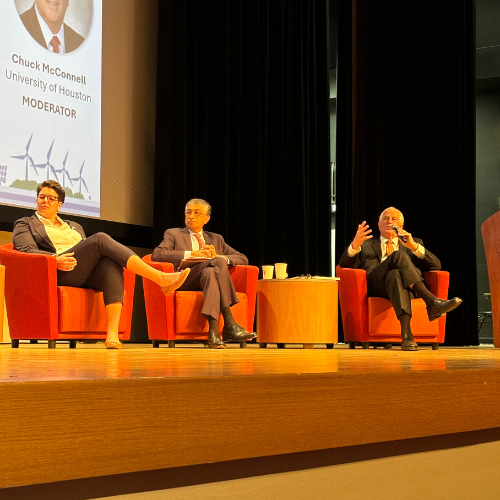
The Decarbonization Congress, hosted by SPE International and in collaboration with the Health, Safety & Environment Department at the University of Houston took place on February 3- 4. This event brought together industry leaders, sustainability experts, and stakeholders to address the critical challenge of reducing 5.1 billion tons of greenhouse gas emissions in the E&P (Exploration and Production) sector of the oil and gas industry.
Houston is the energy capital of the world, and as The Energy University ®, the University of Houston was an ideal place to bring together a forum of engineers, scientists, and industry leaders to work toward a sustainable future for the oil and gas industry. With a focus on practical solutions and industry-wide cooperation, the conference allowed for knowledge-sharing between operators, service providers, and policymakers to explore ways to enhance energy efficiency, mitigate methane leaks, and integrate low-carbon technologies into core operations.
Since the Paris Agreement of 2015, many nations have pledged to be carbon neutral by 2050. While these nations have made the promise, it appears that faster progress needs to be made.
Mikki Corcoran, Vice President of Sustainability at SLB, emphasized the urgency of swift progress in response to her statement on the importance of achieving net-zero by 2030, as opposed to the long-used goal of 2050.
“Those commitments that many people made were made in the 2010s, and the pathway to get to that reduction (net-zero) is a pathway that takes time.” Corcoran said. “Companies need to be able to build their baselines, they need to then start to understand how they can start to apply new technology, so the cycle takes time… I hope that we can do it before, but I think also to be realistic and to give companies and countries the confidence they need to deliver, 2030 is a reasonable target.”
While the journey to net-zero is far from simple, industry leaders are called to recognize the importance of the challenge and the need for continuous results. As the city of Houston and The Energy University continue to lead conversations on the future of energy, events like the Decarbonization Congress serve as another step toward achieving a lower-carbon future.